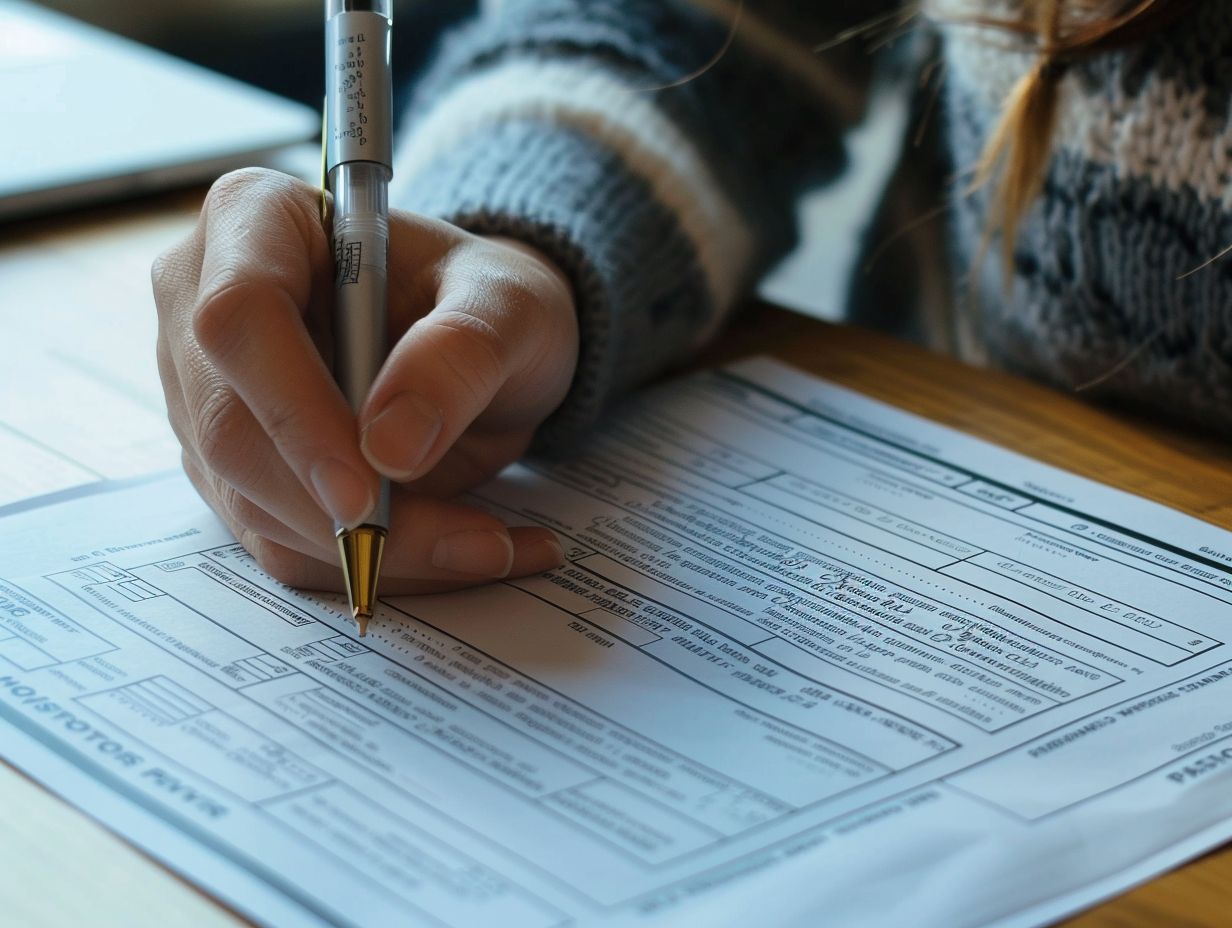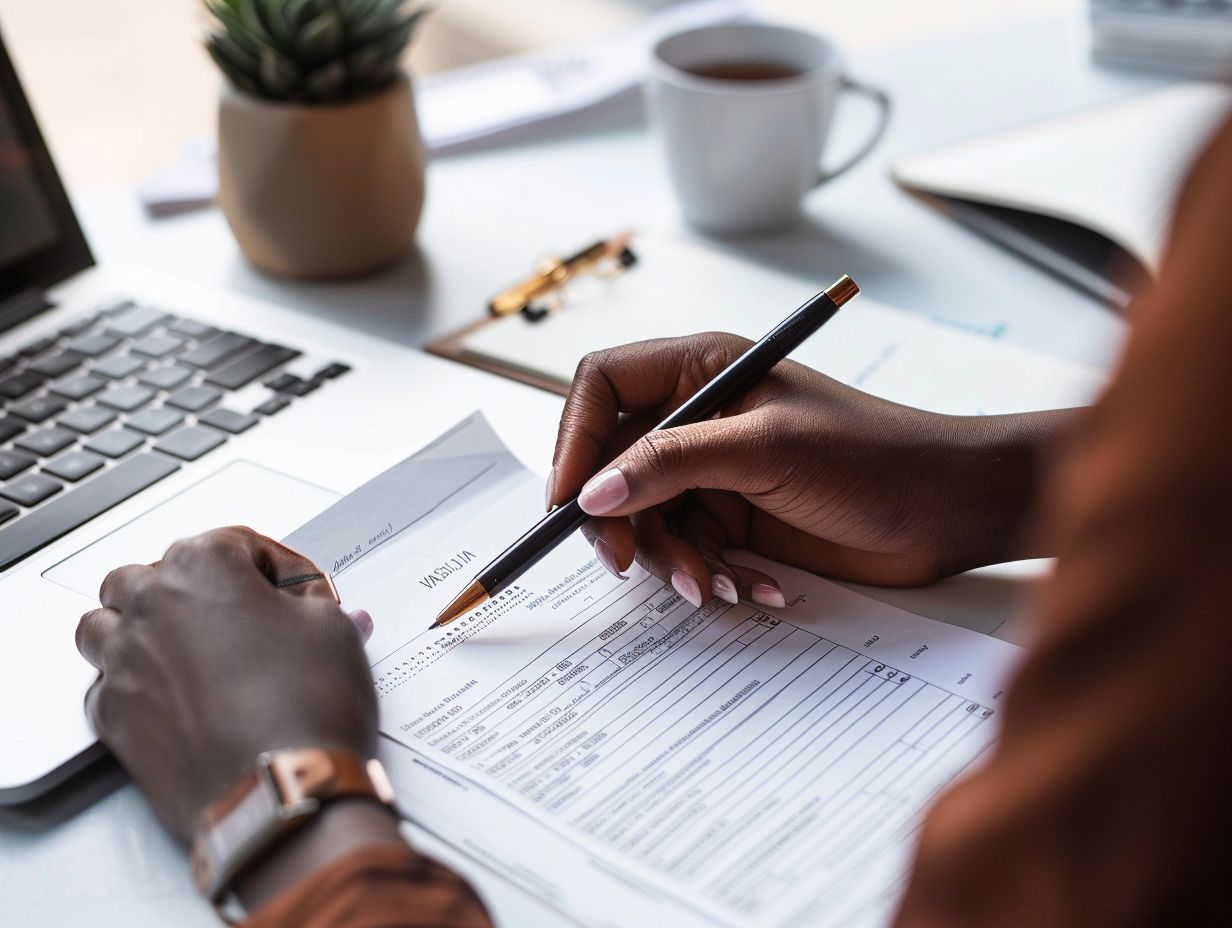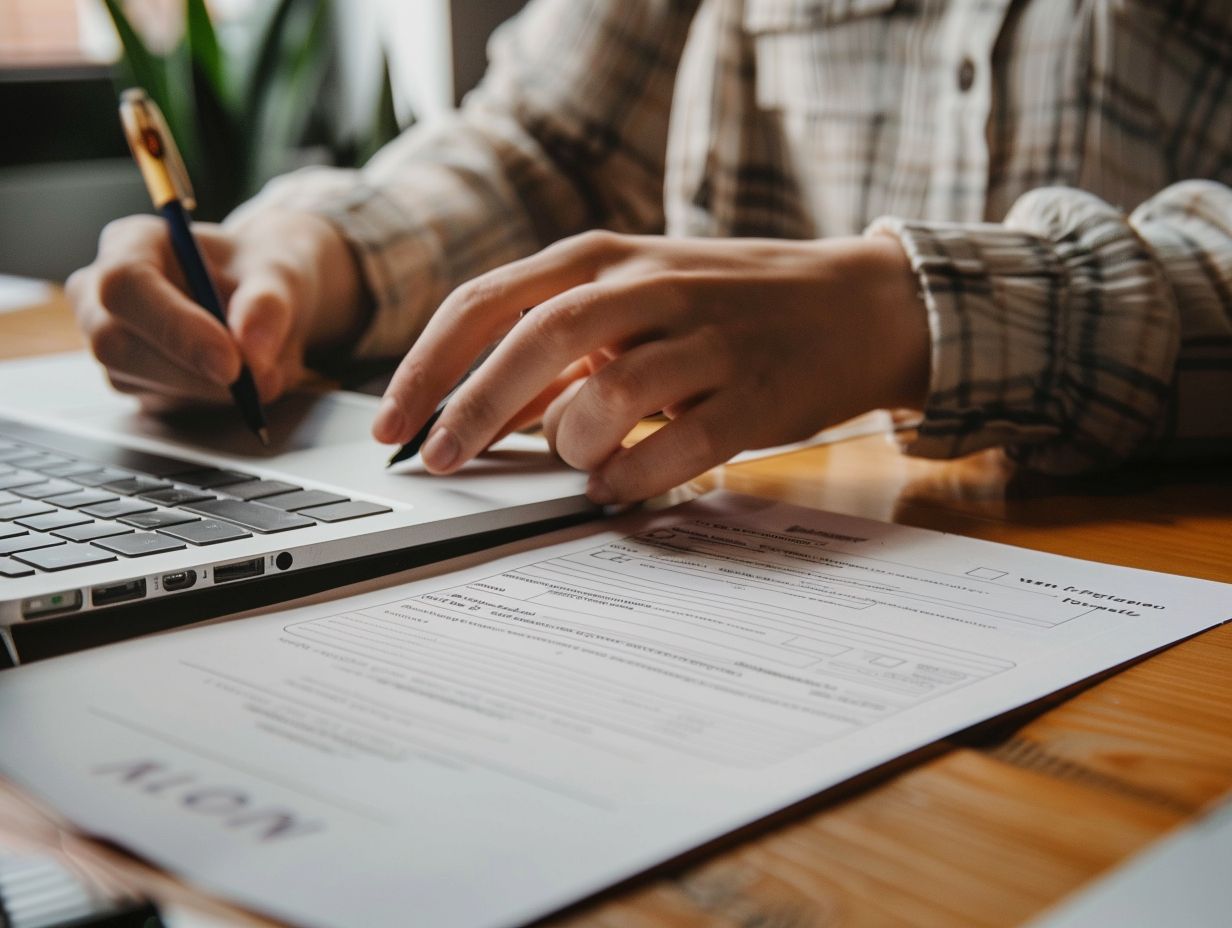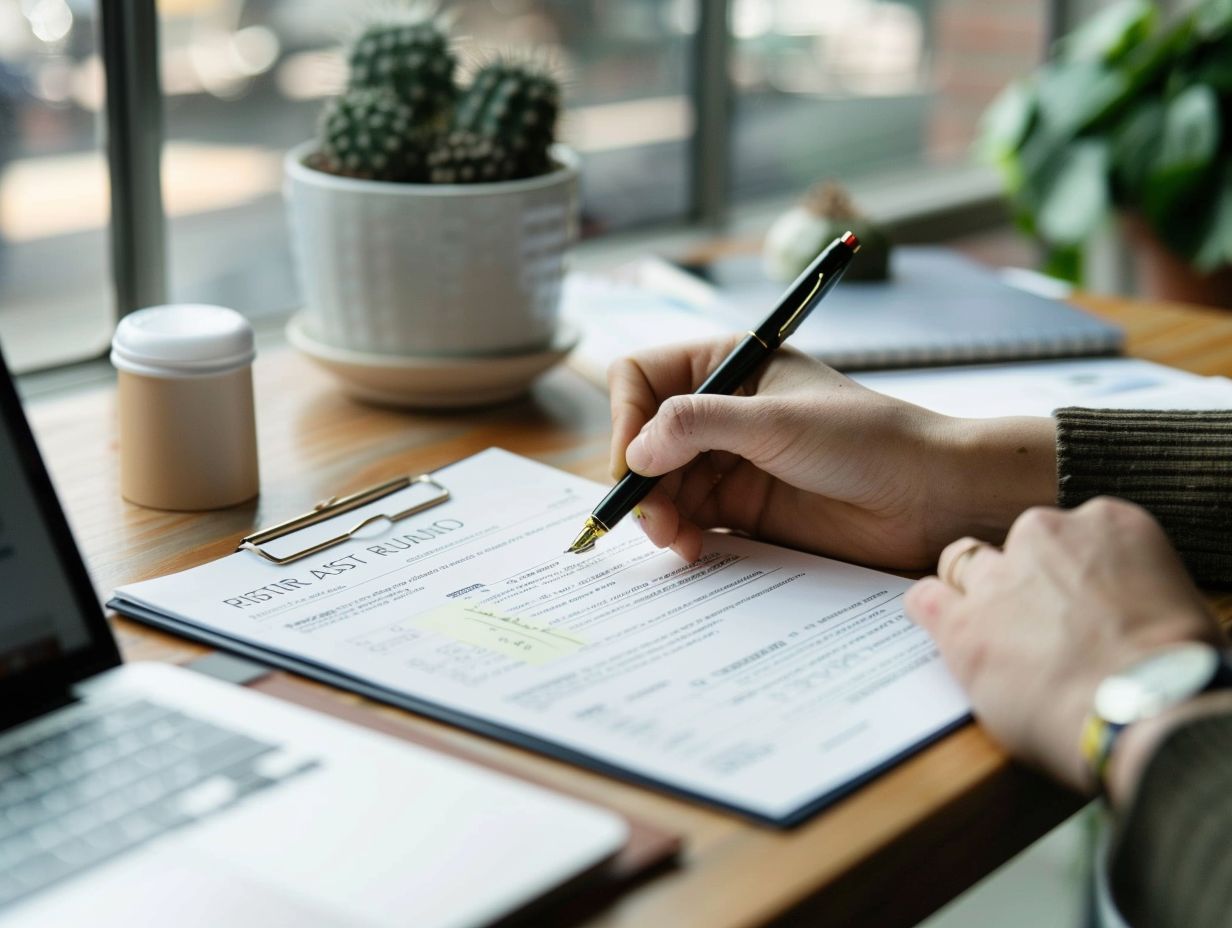Navigating the process of applying for a business visa may seem daunting to you, but with the right knowledge and preparation, you can make it a smooth experience. This article will delve into the different types of business visas, their requirements, and common mistakes you should avoid.
From dealing with incomplete applications to selecting the wrong visa category, we have valuable tips to help you secure your business visa successfully. Make sure to stay tuned for expert advice on researching, seeking professional assistance, and double-checking your application for any errors.
Understanding Business Visas

When you’re planning to travel internationally for business, it’s important to grasp the ins and outs of business visas. You’ll need to figure out the different visa categories, make sure you meet all the eligibility criteria, and get all the necessary supporting documents ready. Securing that business visa is all about paying close attention to the details and following the visa application process meticulously.
Types of Business Visas and Their Requirements
Regarding business visas, you need to know that there are different types, each with its own set of requirements and eligibility criteria that you must meet to get that approval stamp.
To make sure your visa application goes off without a hitch, you’ve got to understand the specific visa category that matches your business activities. Let’s say you’re all about those intra-company transfers – then the L-1 visa is your jam. Just be ready to show that sweet connection between your foreign employer and the U.S. company. But if you’re more of an investor type and a citizen of a treaty country with the U.S., then the E-2 visa is where it’s at. This one calls for a hefty investment in a U.S. business. Grab all your necessary documents, and make sure to customize your application to fit the unique requirements of your chosen business visa type.
Common Mistakes to Avoid
You need to steer clear of common mistakes in your business visa application. Making sure everything is spot-on is key to avoiding visa rejection and keeping your application process nice and smooth.
Watch out for slip-ups like leaving forms incomplete, forgetting essential paperwork, or giving incorrect information. These errors can really throw a wrench in the works, causing delays or even putting your visa approval at risk.
Incomplete or Inaccurate Application
Submitting an incomplete or inaccurate application is one of the most frequent reasons for business visa rejection.
Completing your application form accurately and thoroughly is crucial for ensuring a smooth visa application process. Errors or missing information can lead to delays or even outright rejection of your application. It’s essential to double-check all the details you provide, including your personal information, travel history, and purpose of the visit.
Providing clear and concise answers to all questions can significantly improve your chances of approval. One practical tip to avoid errors is to review your application multiple times before submission and seek assistance if needed, such as consulting with a visa advisor or using online resources for guidance.
Not Providing Adequate Supporting Documents

If you fail to provide the necessary supporting documents, you could face major delays in your visa application process or even risk getting denied.
When you’re applying for a business visa, make sure you have all the key documents ready to go. These include your valid passport, a filled-out application form, proof of financial stability, an invitation letter from the host company, your travel itinerary, and a recent passport-sized photo.
You might also have to show proof of your accommodation arrangements, travel insurance, business licenses, and tax documents. To steer clear of any missing paperwork, put together a checklist and go through each item carefully before you submit your application. For more detailed guidance on what documents you need, check out the embassy’s website or reach out to a visa agent for help.
Failure to Meet Eligibility Criteria
Meeting the eligibility criteria is crucial for getting the green light on your business visa application.
Understanding the common eligibility requirements for business visas is key to ensuring a smooth application process. One major thing you’ll need to show is a legit business reason for your trip, like going to meetings, conferences, or scoping out investment opportunities.
Having enough funds to cover your trip and get back home, a valid passport, a squeaky-clean record, and following immigration laws are all standard boxes to tick. To see if you make the cut, carefully check out the specific criteria laid out by the consulate or embassy of the country you’re applying to.
If you’re not quite there yet with meeting the requirements, you might want to chat with an immigration lawyer or explore other visa options that could work better for your situation.
Incorrect Visa Category
If you apply for the wrong visa category, you might face an immediate rejection of your application.
So, make sure you carefully assess your travel purpose and business activities to figure out which visa category suits your trip best. You’ll come across different business visa categories like work visas, investor visas, and business visitor visas, each designed for specific business engagements. Think about how long you’ll be staying, if you’ll be having business meetings or going to conferences, and if you plan to set up a business presence in the country you’re visiting. Getting advice from an immigration specialist can also help you choose the right visa category.
Tips for a Successful Business Visa Application
If you want to up your game in the business visa application process, you gotta keep a few things in mind. Make sure you’re fully prepared, fill out those application forms with precision, and double-check that you’ve got all the required documents in order.
Researching and Preparing Ahead of Time

Researching and preparing ahead of time is crucial for you to ensure that you meet all eligibility criteria and have all the required documentation in place. When you start your visa application process early, it gives you ample time to gather all necessary information, understand the specific requirements for the visa you are applying for, and organize your documents effectively.
Make sure to check the official government websites or contact the embassy or consulate of the destination country to get accurate and up-to-date information on visa procedures. Create a checklist of the required documents, such as passport copies, financial statements, and proof of accommodation, and make sure you have everything ready before you submit your application.
Seeking Professional Assistance
If you’re looking to ace that business visa application, consider seeking professional assistance.
When you consult with immigration experts or legal advisors, you tap into a wealth of specialized knowledge and guidance that can make navigating immigration laws a breeze. These pros know the ins and outs of the latest regulations and will ensure your application ticks all the right boxes and meets all deadlines. Their expertise will help you sidestep common pitfalls and errors that could put your visa approval at risk. With their support, you can move forward with confidence, knowing you’ve taken all the right steps to boost your odds of a successful outcome.
Double-Checking for Errors and Omissions
Double-checking your application for errors and omissions is a critical step in avoiding unnecessary delays or rejections. This meticulous review process can make the difference between a successful application and one that faces setbacks.
Begin by carefully examining all the information you have provided, ensuring that each detail is accurate and up-to-date. Pay close attention to dates, addresses, contact information, and any supporting documents.
It’s wise to enlist a fresh pair of eyes to review your application as well, as they may spot errors that you might have overlooked. Taking the time to review everything thoroughly can enhance the professionalism and credibility of your submission.
Frequently Asked Questions
What are some common mistakes to avoid when applying for a business visa?

Some common mistakes to avoid when applying for a business visa include submitting incomplete or incorrect application forms, not providing sufficient supporting documents, and not following the specific guidelines for the country you are applying to.
Do I need to have a business already established to apply for a business visa?
No, you do not necessarily need to have a business already established. However, you will need to provide evidence of your business purpose, such as a letter of invitation from a company or organization in the country you are traveling to.
What is the difference between a business visa and a work visa?
A business visa is for individuals who are traveling for business-related purposes, such as meeting with clients or attending conferences. A work visa is for individuals who will be employed by a company in the country they are traveling to.
Can I apply for a business visa if I am self-employed?
Yes, you can apply for a business visa if you are self-employed. However, you will need to provide additional documents, such as your business registration and tax returns, to prove your self-employment status.
What happens if my business visa application is denied?
If your business visa application is denied, you may have the option to appeal the decision or reapply with additional supporting documents. It is important to carefully review the reasons for the denial and address any issues before reapplying.
Is it possible to convert a business visa into a work visa?
The possibility of converting a business visa into a work visa varies depending on the country you are traveling to. Some countries may allow it, while others may require you to return to your home country and apply for a work visa from there. It is best to check with the embassy or consulate for the specific country’s policies.